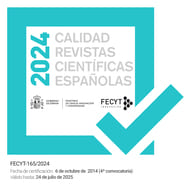Review of The Western Front: Landscape, Tourism and Heritage
DOI:
https://doi.org/10.25145/j.pasos.2018.16.079Palabras clave:
.Resumen
In the recent decades, some voices alerted on the emergence of new morbid destinations, where the main commodity was death. Dark tourism, Thana Tourism, War tourism and so forth questioned the hedonist nature of sand-and-sun products. However, at a closer look, it is tempting to say that war and culture are inextricably intertwined. From this belief departs the present book which is entitled The Western Front: landscapes, tourism and heritage, authored by Stephen Miles. The main goal of this work consists in discussing the conceptual tensions between forgetting and rememorizing past battles and episodes of conflicts. Though much has been written about the archeological sites of battlefronts left by Second World War, less is said respecting to First World War´s Western front. Over these years, the western front has situated as a highly-demanded sites of tourists and visitors interested in knowing further on what happened in this historic and large-scale military conflict.
Descargas
Citas
Korstanje M. 2016. The Rise of Thana Capitalism and Tourism. Abingdon: Routledge.
Saunders, N. 2017. “Modern Conflict Archeology”. In Western Front: landscape, tourism and heritage. Miles, S. Barnsley, Penn & Sword Archeology (ix‑xi).
Stone, P. R. 2006. "A dark tourism spectrum: Towards a typology of death and macabre related tourist sites, attractions and exhibitions". Turizam: znanstveno‑stručni časopis, 54(2): 145‑160.
Descargas
Publicado
Cómo citar
Número
Sección
Licencia
Confirmo que el trabajo es original (de mi/nuestra autoría), y que no se someterá a otras revistas o publicaciones hasta la resolución definitiva del proceso de revisión en PASOS, RTPC.
Autorizo la publicación de mi trabajo por PASOS, RTPC de acceso abierto y gratuito en cualquiera de los formatos que estime oportunos, por un plazo indeterminado y a título de colaboración no remunerada.
Asimismo, el/los autor/es entiende/n que el trabajo publicado podrá vincularse o depositarse en cualquier servidor o ser incluido en otras publicaciones (republicación), siempre y cuando el nuevo lugar y/o la nueva edición referencie la publicación original y reconozca la autoría y la propiedad del copyright de las publicaciones de PASOS RTPC.
Los/as autores/as entienden que se realizará una comprobación de plagio-autoplagio, pudiendo retirarse el artículo en cualquier momento del flujo editorial






